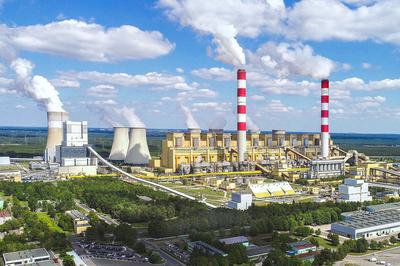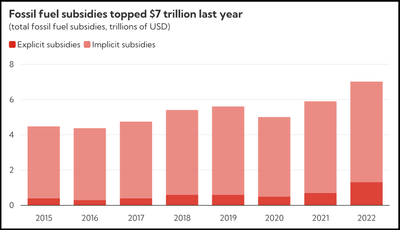The Bełchatów coal plant near Bełchatów, Poland. PGEGiEK via Wikipedia
Global subsidies for fossil fuels reached $7 trillion in 2022, an all-time high, according to the International Monetary Fund.
An analysis of policies in 170 countries found that explicit subsidies, such as price caps on fuel, accounted for 18 percent of this total. With Russia’s war on Ukraine roiling energy markets, many governments have placed limits on the price of fossil fuels, giving money back to consumers when prices exceeded those limits.
The other 82 percent of fossil fuel subsidies were implicit. These included tax breaks for oil firms, but also the unpaid cost of climate change and air pollution as a result of burning fossil fuels. Consumers do not pay directly for the damage caused by their use of fossil fuels. Overall, undercharging for these damages amounted to 60 percent of subsidies, the analysis found.
Analysts called for phasing out both explicit and implicit subsidies. That would mean eliminating price caps and tax breaks, and also imposing a tax on the consumption of fossil fuels to account for the damage inflicted by their use.
Higher prices, analysts said, would curb the use of fossil fuels, helping to cut pollution, stem climate change, and improve public health. If the price of fossil fuels reflected their actual cost, carbon emissions would drop by 43 percent by 2030, and 1.6 million people yearly would be spared an early death from air pollution, the analysis found.
ALSO ON YALE E360
Deep in the Heart of Texas, an Uphill Fight for Clean Air for All




